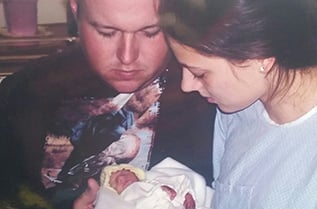Whole exome sequencing–XL (WES-XL) is a comprehensive, phenotype-driven exome analysis using the patient’s genomic data. Identified variants may be confirmed via Sanger sequencing or qPCR if needed as determined by the specific variant called. The standard WES-XL includes a trio analysis (patient plus parents). Samples from can be submitted in place of a parental specimen or in addition to parental samples. (Please note that an additional cost may incur for submitting more than 2 family members in addition to the proband.) Singleton and duos will also be accepted if appropriate family members samples are not available. A separate consent and family studies form must be completed for each familial sample submitted in addition to the patient. Please contact the lab prior to sending a sibling sample.
Secondary findings will only be reported for the patient initially, and only mutations or variants that are expected to harm the function of the gene will be reported. Only SNV analysis will be performed for secondary findings. The patient and/or patient’s guardian has the option to receive or not to receive the information about the patient’s changes that are considered secondary findings. If the lab does not have clear consent to report secondary findings, this will not be included in the final report. If a secondary finding is identified, parents may then elect to have the finding confirmed at no additional charge.
10 weeks
Singleton Analysis: 81415; Duo Analysis: 81415, 81416; Trio Analysis: 81415, 81416x2
Please contact the lab.
The goal of WES-XL is to identify the underlying genetic cause of intellectual or developmental disabilities, birth defects, or other unexplained medical conditions.
Next Generation Sequencing
WES-XL detects single nucleotide variants (SNVs) within exonic regions, intronic regions, promoters, and 3’-UTRs. SNVs are only detected in intergenic regions if the variant has been previously reported. WES-XL will also detect copy number variants (CNVs) as well as sequence variants in the mitochondrial genome that are known to be associated with disease. If a causative variant is identified during either SNV or CNV analysis, the other analysis may not be performed. However, the clinical team will be given the option to proceed with the full analysis and it will also be noted in the final report. WES-XL will not detect trinucleotide repeat expansions, methylation abnormalities, balanced rearrangements, and some small exonic-level copy number changes.
The preferred sample type is 3-5 ml of peripheral blood collected in an EDTA (purple top) tube. Extracted DNA and saliva are also accepted. If saliva is submitted, and the extracted DNA is below quality control, then you will be contacted to submit a blood sample. Contact the lab to have a test kit sent to the provider’s office or a saliva kit sent to the patient.
The specimen should be kept at room temperature and delivered via overnight shipping. FedEx is preferred. If shipment is delayed by one or two days, the specimen should be refrigerated and shipped a room temperature. Do not freeze the specimen. Samples collected on Friday can be safely designated for Monday delivery.
If prenatal exome sequencing XL is desired for ultrasound findings, please see the prenatal exome sequencing-XL test page. Contact the laboratory prior to sending a prenatal specimen. If prenatal diagnosis is desired for a known pathogenic familial mutation, targeted testing is available. Additional fees for cell culture and maternal cell contamination may apply. Maternal cell contamination studies are required for all prenatal molecular tests.
Call our laboratory at 1-800-473-9411 or contact one of our Laboratory Genetic Counselors for assistance.
Robin Fletcher, MS, CGC
Falecia Thomas, MS, CGC
Alex Finley, MS, CGC
